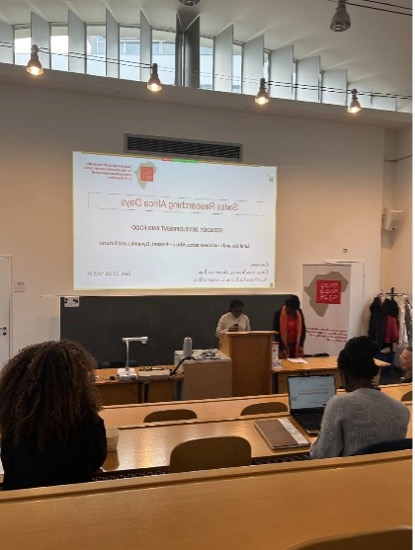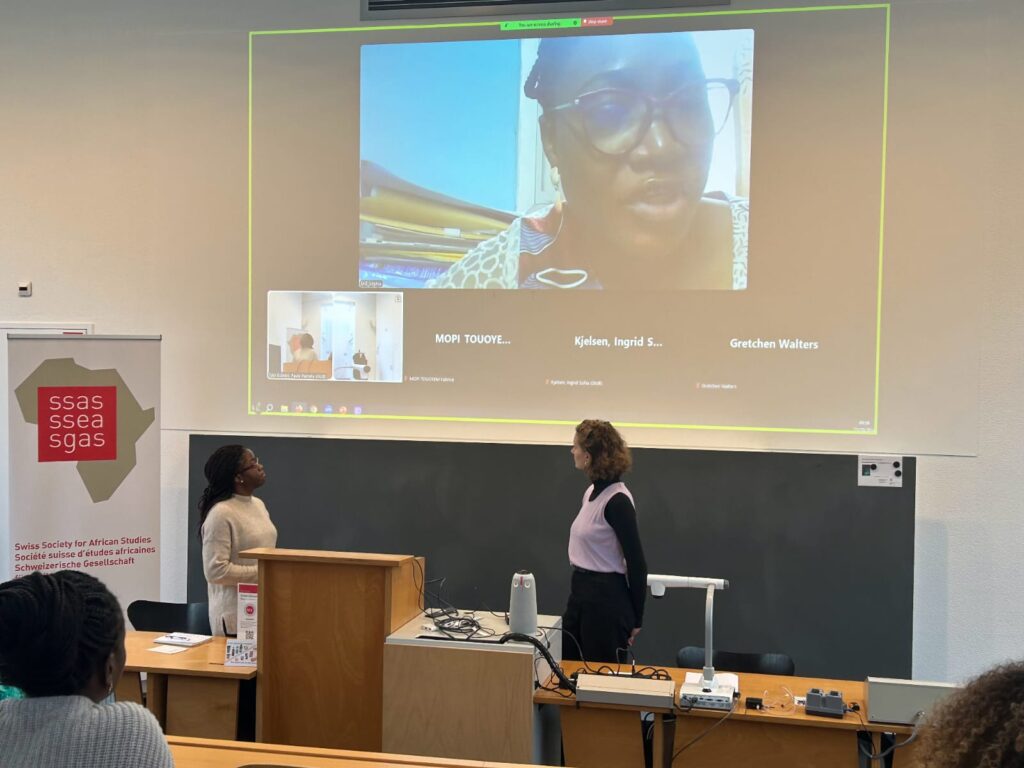Keyword: African Land use and land cover – Sustainable Land Management – Policy and Governance – Certification and standards for sustainable land use systems – Scenario Planning for the Future
Authors: Pamela Tabi and Ingrid Kjelsen
Publish Date: 10.12.2024
Land use and land cover across Africa – present, dynamics and futures

Introduction
Land use and land cover across Africa are complex and dynamic systems. Understanding the past and present patterns of land use and land cover is crucial for identifying potential future changes and pathways for strategies to enhance the resilience of land use systems patterns of land use and land cover aiming to propose sustainable land management options. Land use and land cover vary widely across Africa, with different regions experiencing different patterns of change and pressures on natural resources. Yet some general drivers can be identified and include population growth, urbanization, agricultural expansion, mining, government policies, market demands, climate variability and climate change. These drivers interact with one another and with local socio-economic and political factors to shape land use and land cover dynamics in different ways. Despite the challenges posed by these drivers, opportunities for sustainable land use and land cover management also abound across Africa.
The Swiss Researching Africa Days conference enables us to feature some of the ongoing research in the African continent on the related topic. Indeed, for its 8th edition, the conference focused on two main concepts: sustainability and transformation. For our panel session we were happy to welcome eight presenters organized in two sessions:
1st session:
Dr. Mopi Toyem Fabrice: “Agroforest land-use dynamics and sustainable cocoa production in the savannahs of Central Cameroon”. The presentation showcased insights about the process of setting up cocoa-agroforestry system in Savanna landscapes in Cameroon and the implication of the EU regulation on zero deforestation for commodities issues in tropical areas.
Dr. Eke Balla: “Certification standards for sustainable land use systems by Medium-Scale Agricultural firms in Cameroon”. The presentation aims to investigate factors influencing the adoption of certification and determining the adoption of multiple sustainable land-use systems among certified and uncertified medium-scale agricultural firms (MSAF) in Cameroon.

Prof. Gretchen Walters: “Understanding the legacy of the colonial resettlement policy on historic forest recovery in the Ivindo landscape of Gabon (ForHist)”. The overall objective of the presentation was to understand how humans have influenced biodiversity throughout history and landscape settlement in Gabon.
M. Victor Onyilor Achem: “Gendered Impacts of Climate Change, Environmental Exploitation, and Conflict on Women’s Rights and Land Ownership in North Central Nigeria”. In his presentation he demonstrated how despite women in Benue State have historically played crucial roles in various economic activities, conflict-induced displacement has disrupted their livelihoods, leading to the loss of agricultural produce, livelihood assets, and equal rights to reclaim land.
2nd session:
Ms Ange Kadjio Feudjio: “Analysis of Land Use/ Land Cover Changes and identification of deforestation drivers in the Nyanon-Ngambé-Ndom Communal Forest (Littoral Region of Cameroon)”. The presentation aims to contribute to the sustainable management of the Ngambe communal forest and identify the drivers responsible for change.
Ms Cecilia Olima: “Integrating Stakeholders’ Perspectives and Spatial Modelling to develop scenarios of future land use and Land Cover Change in Lamu County, Kenya”. Based on past and current drivers of Land Use Land Cover Change (LULCC) in Lamu be able to co-produce scenarios narratives of future LULCC for communities in Lamu in 2030 and 2063.
Dr. Baba Faradji Ndiaye: “The mining communities of Mali: from landowners to usufructuaries”. The study aims to better understand the complexity of externalities linked to mining activity in so-called mining municipalities and understand the models of change induced by the pressures of mining activity on ecosystem services.
Dr. Milka Kiboi: “Agroecological and organic farming systems for sustainable agricultural land use in Africa – Long-term research in the sub-humid zones of Kenya”. The study presented the usefulness of organic farming in improving soil productivity and laying the foundation for implementing agroecological systems in Africa.
Closing
The conference session offered a rich and interdisciplinary exploration of land use and land cover dynamics across Africa. These systems are complex and dynamic, shaped by drivers such as population growth, agricultural expansion, and climate change, and by myriad stakeholders. Understanding the complex processes their feedback is crucial for enhancing the resilience of land use land cover systems and promoting sustainable land management.
Our panel at the 8th Swiss Researching Africa Days featured eight insightful presentations over two sessions. The presenters are members of various research institutes across Africa and Switzerland. Their presentations covered a wide palette of themes related to land use land cover dynamics across Africa, ranging from sustainable agriculture, certifications and organic farming to questions of gender, colonial impacts, and exploitation.
For those eager to delve deeper into land use land cover change dynamics in Africa, explore publications of the SUSTAINFORESTS team at the following link or additional resources available on the SSAS website . Through continued collaboration and interdisciplinary research, we can work towards enhancing the resilience of land use systems across Africa.
The presentations address the current debate about land management and implication for sustainable use of resources in Africa and propose while considering the important role actors have to play.
Thankfulness
We would like to extend our heartfelt gratitude to the conference organizers for their hard work and dedication in bringing together this important event. We also want to emphasize the crucial need to advance research initiatives in Africa. By prioritizing this, we can drive innovation and development on the continent. Additionally, establishing strong connections with Swiss researchers can create valuable collaborations, facilitating knowledge exchange and promoting joint projects that benefit both regions. Together, we can make significant strides in our understanding and tackling global challenges.
